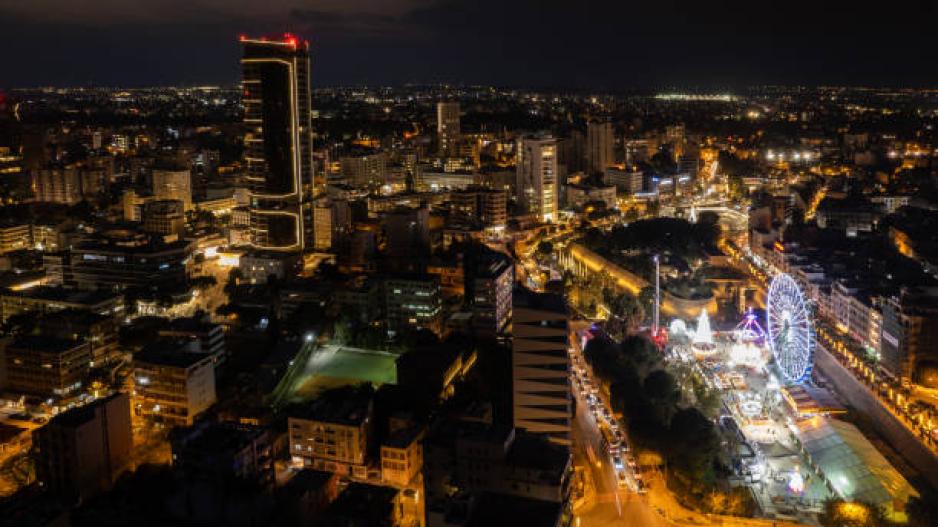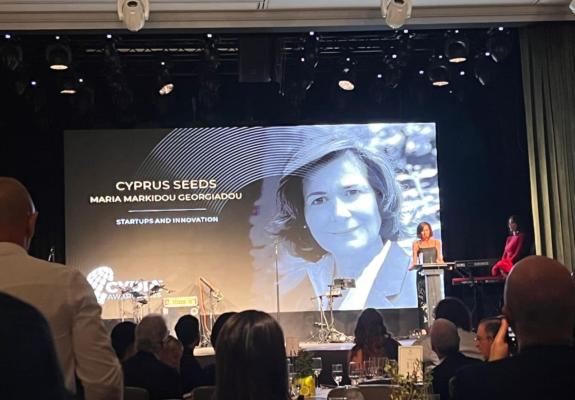Nicosia’s Night-Time Economy: EU Project Aims to Boost Sustainable Urban Development
‘Cities After Dark’ Examines Opportunities for Economic and Cultural Growth in Nicosia’s Night-Time Economy
Cities are traditionally designed to function primarily during the day, but an EU-funded project is now examining the potential for sustainable development of the night-time economy, including whether this could be implemented in Nicosia. Simone d'Antonio, chief expert of the "Cities After Dark" network—the first European Union-funded project on this subject—told the Cyprus News Agency that the night-time economy creates jobs, and Nicosia presents new opportunities in this regard.
D'Antonio, along with other experts and participants from the "Cities After Dark" network, visited Nicosia and met with city authorities and stakeholders involved in the night-time economy. He spoke with CNA about various strategies and innovations related to nightlife in cities, emphasizing the importance of citizen engagement in creating sustainable and cohesive urban environments.
The project, titled "Night-Time Economy for Sustainable Development," is led by Braga, Portugal, and includes nine other European cities: Paris (France), Tallinn (Estonia), Varna (Bulgaria), Genoa (Italy), Malaga (Spain), Nicosia (Cyprus), Piraeus (Greece), Zadar (Croatia), and Budva (Montenegro). D'Antonio noted that cities of different sizes are being studied to explore issues such as night-time economic activity, urban mobility, safety, cultural management, emergency services, and supply chains.
The project examines models of the night-time economy, analyzing economic activities from 6:00 p.m. to 6:00 a.m. in cities across Europe. Its goal is to develop innovative solutions and action plans, in cooperation with local stakeholders, to improve policies in each participating city.
A key aspect of the program is the involvement and exchange of ideas with local actors in each city. "What’s completely new about our approach is that we’re bringing the discussion to local institutions, fostering cooperation between local authorities and the night-time economy sector," d'Antonio said. He added that this reduces conflicts, promotes social cohesion, and provides opportunities for entrepreneurs and artists to improve cities and enhance residents' quality of life.
D'Antonio cited Braga, Portugal, as an example, highlighting the city's launch of a 24-hour nursery, the first of its kind, which serves families where both parents work at night—such as doctors, nurses, or individuals in the cultural sector, bars, restaurants, or universities.
He added that the night-time economy is a significant source of employment, noting that in the United Kingdom, one in ten jobs are night-shift positions.
Regarding Nicosia’s night-time economy, d'Antonio mentioned that the city recently organized workshops and DJ courses for young people near Eleftherias Square, describing it as "a great example of how public space can be used." He also highlighted how cultural and other activities in the old town of Nicosia contribute to revitalizing the city by creating new opportunities and dynamics.
When asked about the economic prospects for Nicosia in the evening, d'Antonio suggested that "in walled Nicosia, many abandoned shops and buildings could be transformed into art galleries or museums at night, on an experimental basis." He added that new businesses and activities could be developed, including music and cultural venues, beyond just bars and clubs. "Everything within the city can be revitalized by organizing events in different areas," he stated.
He also noted that several cities, such as Berlin and Zurich, have established night-time economy committees, which could serve as a good model for Nicosia. These committees typically involve diverse groups, including LGBTQ and women’s organizations, to ensure inclusive participation in discussions about the night-time economy.
Finally, d'Antonio shared that the project’s final results will be presented in Tallinn, Estonia, in September 2025, along with a major festival. In the meantime, other events and actions focused on the night-time economy will take place at European and international levels.






